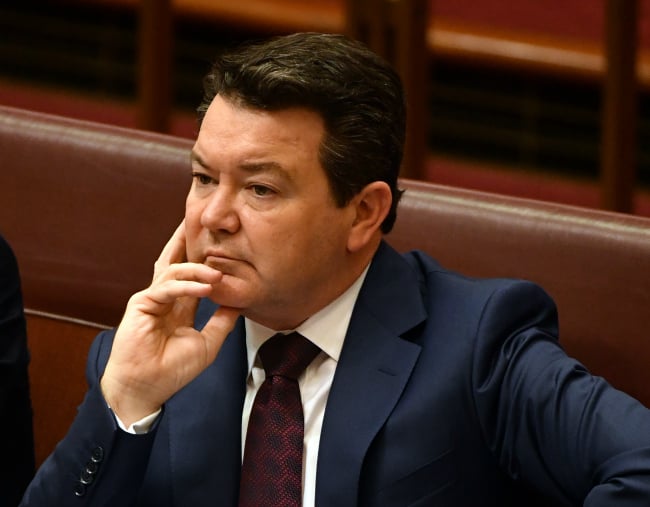On Wednesday we will finally learn the result of the marriage equality postal survey.
However, if the opinion polls are indeed correct and we get an overwhelming ‘yes’ vote, it’s not the final hurdle to legalise marriage for same sex couples in Australia.
The $122 million postal survey was, as we all know, non-binding. Now, members of parliament will be asked to vote on whether they want to see our marriage laws changed, informed by the will of the general public.
And to do that, they need a bill. Liberal Senator Dean Smith has said he’ll introduce the Marriage Amendment (Definition and Religious Freedoms) Bill 2017 this week, in the event of a ‘yes’ vote. It’s a bill that has cross-party support for how it balances the legalisation of same sex marriage with religious concerns (namely, allowing ministers or celebrants to turn away LGBTI couples).
Listen: Mia Freedman talks to Janine Middleton, the CEO of Australian Marriage Equality.
However, there is another bill proposed by conservative Liberal Senator James Paterson that goes even further, backed and developed by no-leaning MPs. And if that fact alone rings alarm bells in your head, you’re on the money. This proposed bill has drawn criticism for its potential to undermine Australia’s anti-discrimination laws.
So let’s take a look at why this bill is so dangerous.
Empowering people to say no.
When we talk about empowering, it’s often seen in a positive light. In this case though, the bill, if enacted, would give anyone involved in Australia’s greater than $2 billion wedding industry the power to refuse their services to same-sex couples on grounds of “conscientious objection”.



Top Comments
OK..........To start with, if you really think about it..........RELIGION has nothing to do with marriage.
It has nothing to do with Marriage Equality either.
Extreme Right-Wing religious types have desperately tried to become part of this conversation - but in reality, there's no conversation to be had....not with them.
This is a LEGAL matter.
The majority of Australians who voted have indicated they support legal Gay Marriage.
As an Agnostic I'm personally annoyed that the Religious Right are still trying to influence how this goes down.
Well I can't imagine any couple wanting to include non-supporters in any part of their happy celebrations.
Prime Minister Turnbull has to show a backbone and not give in to the Religious Right's fear-mongering, time wasting, pettiness and bullying.